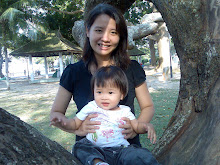Different types of forms available for different tests:
- Preferred Forms (the learning environments students prefer) and Actual Forms (the learning environment that the students experienced). Results from the two types of forms gives quantitative data as to whether there is significant difference between the preferred learning environment and the actual learning environment. Paired sample t-test could be performed on the two tests to test for any statistically significant differences.
- Class Forms (elicit individuals' perceptions of the class) and Personal Forms (evaluate an individuals' perceptions of her own role within the class)
We were also introduced to the OLES (Online learning environment survey). This is an instrument used to evaluate e-learning in an online environment. "Oodles" and "Survey Monkey" are some free softwares we can use to create our own online surveys!
Considerations when choosing a LE Instrument:
- Whether the language used in the instrument is suitable: appropriate difficulty level of the language used for the level and age of students, cultural suitability of the wordings used in the instrument.
- Whether the dimensions in the instrument is relevant for the research question.
- We can select and choose the scales and items to use in each instrument and we can even plug scales from other instruments to include in the instrument to be used in our own study if necessary. However, it is important to note that QTI measures slightly different dimensions compared to the rest of the LE instruments.
We also did a group case study of three different schools and sift out some factors in the school learning environment that actually makes it conducive and non-conducive for learning to take place. Overall, factors that contribute to effective learning environment include good leadership, teachers' intrinsic motivation to help students improve, students' self-discipline in their own learning, good overall discipline of the school, strong and good school culture.
We were privileged to attend a conference presentation in the APERA (Asia-Pacific Education Research Association) conference 2008 where Marsiling Secondary School teachers were sharing on using Knowledge Forum (KF) in an online environment to scaffold and enhance students' learning in D&T.
That's all for today.. Cheers and have a great weekend! :)


No comments:
Post a Comment